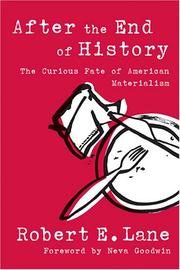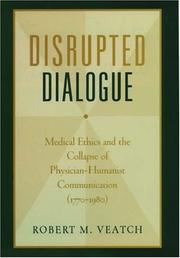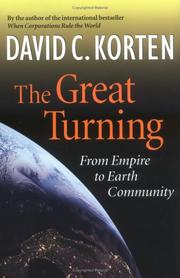| Listing 1 - 9 of 9 |
Sort by
|
Book
Year: 2019 Publisher: Milano, Italy : Ledizioni,
Abstract | Keywords | Export | Availability | Bookmark
 Loading...
Loading...Choose an application
- Reference Manager
- EndNote
- RefWorks (Direct export to RefWorks)
Gli undici saggi che compongono il volume costituiscono un omaggio che gli Autori hanno voluto tributare, in occasione del centocinquantenario della nascita, a Federico Patetta (Cairo Montenotte, 16.2.1867 – Alessandria, 28.10.1945), un maestro emblematico per la Storia del diritto italiano e, più in generale, per le discipline genericamente definite ‘umanistiche’, il quale ha illustrato con il proprio magistero l’Ateneo torinese nei primi decenni del secolo XX. Le tre parti in cui si articola il libro tentano di restituire un profilo complesso del personaggio che in certo qual modo rifletta la poliedricità di formazione, di interessi e di magistero che hanno contraddistinto lo studioso nel vivace e complesso panorama culturale della prima metà del Novecento. La costante attenzione all’indissolubile e imprescindibile legame tra ricerca e insegnamento universitario, la raffinata erudizione negli ambiti più eterogenei delle ‘scienze umane’, la costante vocazione di filologo e critico, esercitata su un prezioso e vasto patrimonio librario e manoscritto a noi tramandato, emergono – nei contributi qui raccolti – quali cifra e testamento spirituale di uno degli ultimi ‘umanisti’ della contemporaneità che parrebbe ancora aver molto da insegnare sull’urgenza e imprescindibilità del recupero della storia delle fonti, giuridiche ma anche letterarie, filosofiche, teologiche, tardo-antiche e altomedievali, per la sopravvivenza della preziosa eredità culturale e civile dell’Occidente.
Periodical
ISSN: 23254939 Year: 2011 Publisher: Amherst, N.Y. : Institute for Science and Human Values
Abstract | Keywords | Export | Availability | Bookmark
 Loading...
Loading...Choose an application
- Reference Manager
- EndNote
- RefWorks (Direct export to RefWorks)
The journal focuses on the promotion of human values and how to foster those values throughout society. Moreover, the journal deals with scientific issues and their impact upon and relationship to society.
Humanistic ethics --- Science --- Social aspects
Book
ISBN: 0779980301 9780779980307 9781495504266 1495504263 Year: 2016 Publisher: Lewiston, NY
Abstract | Keywords | Export | Availability | Bookmark
 Loading...
Loading...Choose an application
- Reference Manager
- EndNote
- RefWorks (Direct export to RefWorks)
Humanistic ethics --- Ethics --- Philosophy --- Philosophy & Religion --- Humanist ethics --- Humanism --- History

ISBN: 080320261X 0585311358 9780585311357 9780803219946 0803219946 0803219946 Year: 2000 Publisher: Lincoln, Neb. University of Nebraska Press
Abstract | Keywords | Export | Availability | Bookmark
 Loading...
Loading...Choose an application
- Reference Manager
- EndNote
- RefWorks (Direct export to RefWorks)
Humanistic ethics. --- Social sciences and ethics. --- Ethics and social sciences --- Social ethics --- Humanist ethics --- Ethics --- Humanism
Book
ISBN: 9783031343667 3031343662 Year: 2024 Publisher: Cham : Springer International Publishing : Imprint: Palgrave Macmillan,
Abstract | Keywords | Export | Availability | Bookmark
 Loading...
Loading...Choose an application
- Reference Manager
- EndNote
- RefWorks (Direct export to RefWorks)
This edited volume offers a comprehensive analysis of humanistic leadership, bringing together authors with experience working in different cultures to demonstrate that humanistic leadership exists everywhere and has enabled companies to sustain all over the world. There is a high volume of evidence that executive education has significant influence in the decisions of executives and upper managers in business, government and other institutions. However, in spite of the many different leadership theories in existence, there is a severe deficit of research and literature addressing the specific needs of organizations for integrating the human dimension. This book highlights different cultural case studies from around the world to demonstrate that humanistic leadership is the model that best enables employees to thrive and businesses to sustain. Part of the popular Humanism in Business series, this book will be of great interest to academics, students and practitioners of leadership and human resources. “People are realizing that leadership today requires more than just managing an organization well for the purpose of maximizing profit. In this important book, several authors explore the defining characteristics and behavior of what are becoming known as ‘humanistic leaders’. Humanistic Leadership in Different Cultures is a powerful and inspiring accompaniment to bodies of work about servant leadership and quantum leadership, and adds the dimension about how these are practiced in different cultures. I recommend it highly.” Danah Zohar, Author of The Quantum Leader and Zero Distance.
Business ethics. --- Humanistic ethics. --- Servant leadership. --- Personnel management. --- Strategic planning. --- Leadership. --- Human Resource Management. --- Business Ethics. --- Business Strategy and Leadership.

ISBN: 128243781X 9786612437816 0472024175 9780472024179 0472069152 0472099159 9780472069156 9780472099153 0472099159 9780472099153 0472069152 9780472069156 Year: 2006 Publisher: Ann Arbor
Abstract | Keywords | Export | Availability | Bookmark
 Loading...
Loading...Choose an application
- Reference Manager
- EndNote
- RefWorks (Direct export to RefWorks)
Contentment. --- Humanistic ethics. --- Interpersonal relations -- United States. --- Materialism --- Quality of life --- Humanist ethics --- Ethics --- Humanism --- Gladness --- Satisfaction --- Happiness --- Peace of mind --- Sociology & Social History --- Social Sciences --- Social Conditions --- Interpersonal relations

ISBN: 1280840978 0199748101 1429438169 9781429438162 9781280840975 9786610840977 6610840970 019516976X 9780195169768 0197706371 9780199748105 Year: 2005 Publisher: Oxford Oxford university press
Abstract | Keywords | Export | Availability | Bookmark
 Loading...
Loading...Choose an application
- Reference Manager
- EndNote
- RefWorks (Direct export to RefWorks)
Medical ethics changed dramatically in the past 30 years because physicians and humanists actively engaged each other in discussions that sometimes led to confrontation and controversy, but usually have improved the quality of medical decision-making. Before then medical ethics had been isolated for almost two centuries from the larger philosophical, social, and religious controversies of the time. There was, however, an earlier period where leaders in medicine and in the humanities worked closely together and both fields were richer for it. This volume begins with the 18th century Scottish Enlightenment when professors of medicine such as John Gregory, Edward Percival, and the American, Benjamin Rush, were close friends of philosophers like David Hume, Adam Smith, and Thomas Reid. They continually exchanged views on matters of ethics with each other in print, at meetings of elite intellectual groups, and at the dinner table. Then something happened, physicians and humanists quit talking with each other. In searching for the causes of the collapse, this book identifies shifts in the social class of physicians, developments in medical science, and changes in the patterns of medical education. Only in the past three decades has the dialogue resumed as physicians turned to humanists for help just when humanists wanted their work to be relevant to real-life social problems. Again, the book asks why, finding answers in the shift from acute to chronic disease as the dominant pattern of illness, the social rights revolution of the 1960's, and the increasing dissonance between physician ethics and ethics outside medicine. The book tells the critical story of how the breakdown in communication between physicians and humanists occurred and how it was repaired when new developments in medicine together with a social revolution forced the leaders of these two fields to resume their dialogue.
Medical ethics --- Humanistic ethics --- Physicians --- Humanist ethics --- Ethics --- Humanism --- Allopathic doctors --- Doctors --- Doctors of medicine --- MDs (Physicians) --- Medical doctors --- Medical profession --- Medical personnel --- Medicine --- Biomedical ethics --- Clinical ethics --- Ethics, Medical --- Health care ethics --- Medical care --- Bioethics --- Professional ethics --- Nursing ethics --- Social medicine --- History. --- Moral and ethical aspects --- History

ISBN: 1282300598 9786612300592 9781576755386 1576755398 9781576755396 9781609944254 1609944259 9781282300590 1887208070 9781887208079 1887208089 9781887208086 6612300590 157675538X 9781576755389 Year: 2006 Publisher: San Francisco, CA Bloomfield, CT Berrett-Koehler Kumarian Press
Abstract | Keywords | Export | Availability | Bookmark
 Loading...
Loading...Choose an application
- Reference Manager
- EndNote
- RefWorks (Direct export to RefWorks)
The threat of continued warfare to the future of humanity has become dire. "The Great Turning explores that threat in detail and provides an equally detailed plan for meeting -- and overcoming -- it. Written in the author's trademark clear, compelling style, this timely book uncovers the roots of Empire in ancient Athens and charts the long transition from the institutions of monarchy to those of the global economy as the favored instruments of imperialism. Korten then discusses the promise of early America as a democracy dedicated to spreading liberty and freedom -- and the failure of th
International cooperation. --- Sustainable development. --- Social ethics. --- Humanistic ethics. --- Social justice. --- Cooperation. --- Human ecology. --- Economic history. --- Economic conditions --- History, Economic --- Economics --- Ecology --- Environment, Human --- Human beings --- Human environment --- Ecological engineering --- Human geography --- Nature --- Collaborative economy --- Cooperative distribution --- Cooperative movement --- Distribution, Cooperative --- Peer-to-peer economy --- Sharing economy --- Profit-sharing --- Equality --- Justice --- Humanist ethics --- Ethics --- Humanism --- Social problems --- Sociology --- Development, Sustainable --- Ecologically sustainable development --- Economic development, Sustainable --- Economic sustainability --- ESD (Ecologically sustainable development) --- Smart growth --- Sustainable development --- Sustainable economic development --- Economic development --- Cooperation, International --- Global governance --- Institutions, International --- Interdependence of nations --- International institutions --- World order --- Cooperation --- International relations --- International organization --- Social aspects --- Effect of environment on --- Effect of human beings on --- Environmental aspects --- International Cooperation --- Social ethics --- Humanistic ethics --- Social justice --- Human ecology --- Economic History

ISBN: 0521898935 0521727626 9786612539183 0511718845 0511719299 0511718381 0511808399 1282539183 0511515049 0511516320 1107202256 9780511718847 9781282539181 9780511719295 9780511515040 9780511512322 0511512325 9780511514630 0511514638 9780521898935 9780521727624 9780511718380 9780511808395 9781107202252 6612539186 9780511516320 Year: 2009 Publisher: Cambridge Cambridge University Press
Abstract | Keywords | Export | Availability | Bookmark
 Loading...
Loading...Choose an application
- Reference Manager
- EndNote
- RefWorks (Direct export to RefWorks)
What is the purpose of our economic system? What would a more life-serving economy look like? There are many books about business and society, yet very few of them question the primacy of GDP growth, profit maximization and individual utility maximization. Even developments with a humanistic touch like stakeholder participation, corporate social responsibility or corporate philanthropy serve the same goal: to foster long-term growth and profitability. Humanism in Business questions these assumptions and investigates the possibility of creating a human-centered, value-oriented society based on humanistic principles. An international team of academics and practitioners present philosophical, spiritual, economic, psychological and organizational arguments that show how humanism can be used to understand, and possibly transform, business at three different levels: the systems level, the organizational level and the individual level. This groundbreaking book will be of interest to academics, practitioners and policymakers concerned with business ethics and the relationship between business and society.
Business, Economy and Management --- Business Management --- Business ethics. --- Humanism --- Economics --- Social aspects. --- Moral and ethical aspects. --- Sociological aspects. --- Economic theory --- Political economy --- Social sciences --- Economic man --- Philosophy --- Classical education --- Classical philology --- Philosophical anthropology --- Renaissance --- Business --- Businesspeople --- Commercial ethics --- Corporate ethics --- Corporation ethics --- Professional ethics --- Wealth --- Economic sociology --- Socio-economics --- Socioeconomics --- Sociology of economics --- Sociology --- Moral and ethical aspects --- Social aspects --- Humanistic ethics. --- Humanist ethics --- Ethics --- General ethics
| Listing 1 - 9 of 9 |
Sort by
|

 Search
Search Feedback
Feedback About UniCat
About UniCat  Help
Help News
News